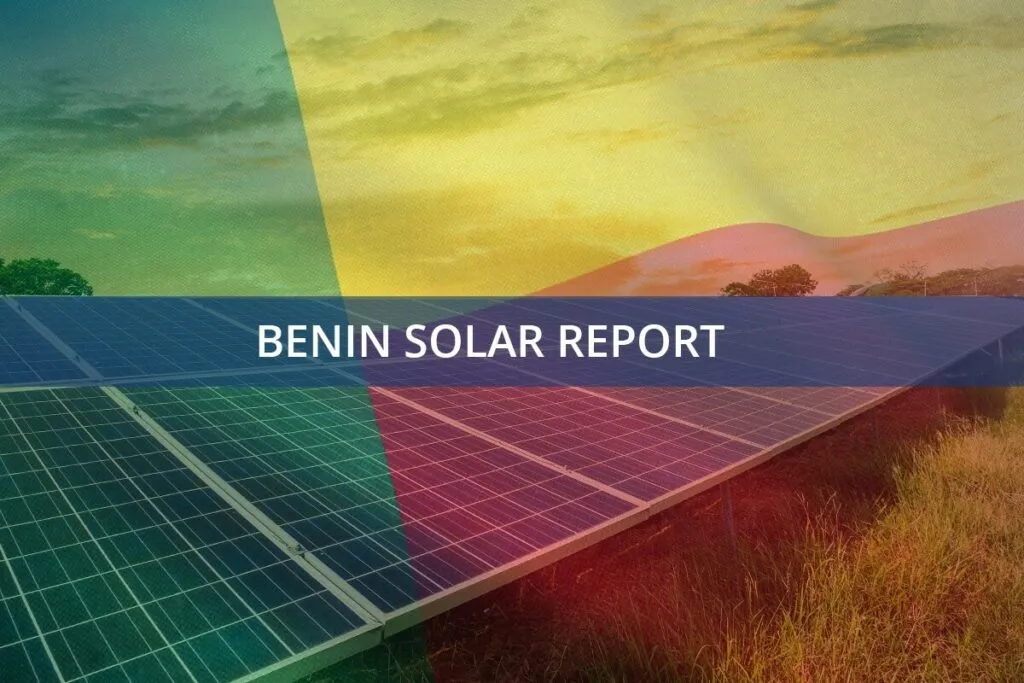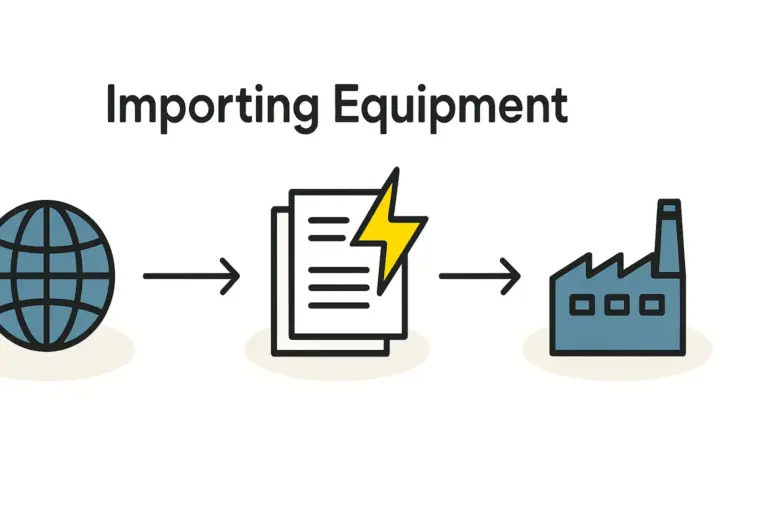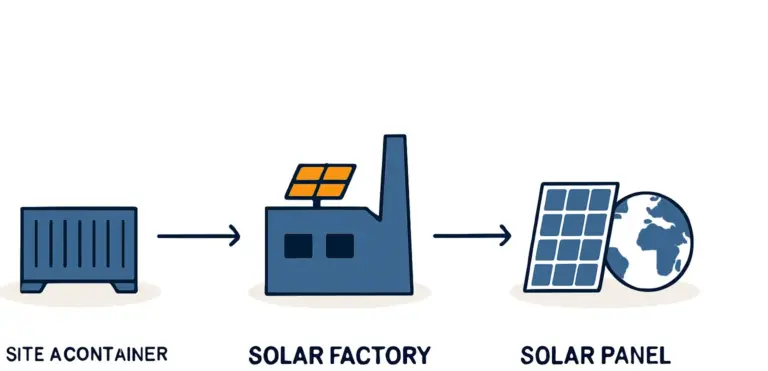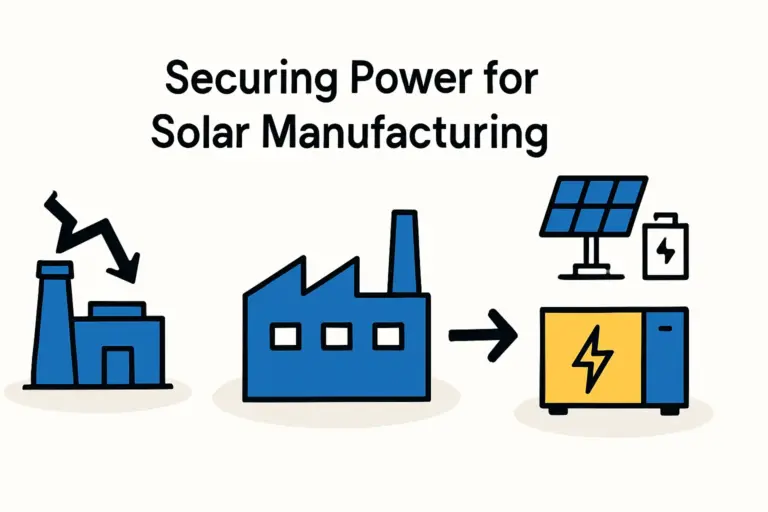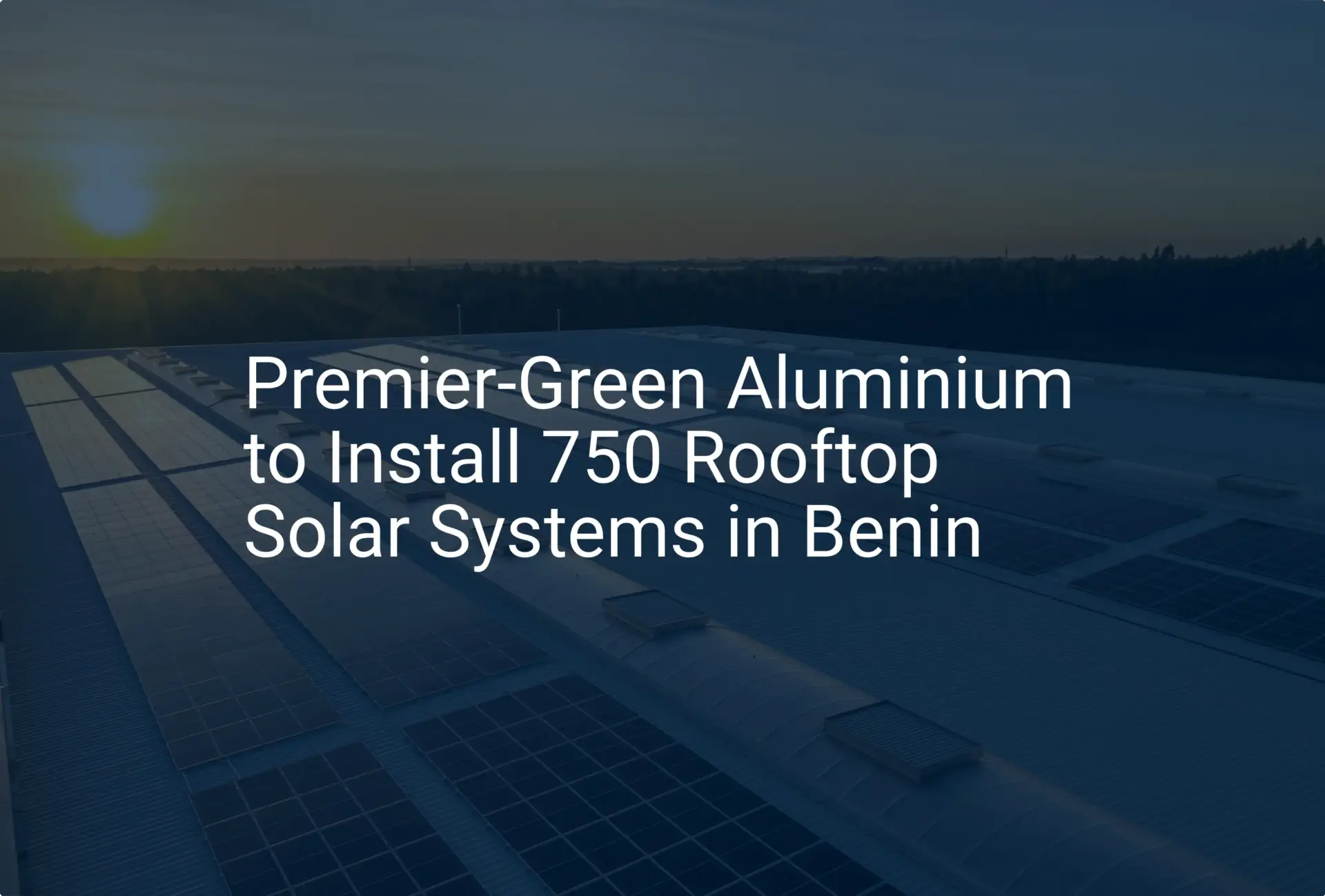Your new solar module factory in Benin is operational. The production line is running smoothly, and the first batch of high-quality modules is ready, attracting strong interest from buyers in Cotonou, Accra, Lomé, and Abidjan.
But a critical question stands between production and sales: Do your modules meet the standards required to be sold legally and competitively across West Africa?
For entrepreneurs entering the solar manufacturing space in Benin, understanding quality standards is a fundamental business strategy, not just a technical detail. Compliance unlocks market access, builds brand credibility, and ensures the long-term viability of your investment. This guide breaks down the essential standards your products must meet, from global benchmarks to the specific regional requirements for the Economic Community of West African States (ECOWAS).
Table of Contents
The Global Foundation: IEC Certification
Before looking at regional specifics, it’s essential to grasp the international language of solar module quality: the standards set by the International Electrotechnical Commission (IEC). These globally recognized benchmarks serve as the foundation for nearly all national and regional certification programs.
For solar PV modules, two primary IEC standards are critical:
-
IEC 61215 (Design Qualification and Type Approval): This standard tests the performance and durability of a module’s design. It subjects modules to a series of stress tests—including thermal cycling, humidity-freeze cycles, and mechanical loads—to simulate decades of outdoor exposure. Passing this standard demonstrates that the module design is built to last.
-
IEC 61730 (PV Module Safety Qualification): This standard focuses on safety, ensuring the module is protected against electrical shock, fire hazards, and personal injury. It is a prerequisite for selling modules in most markets worldwide.
For any serious manufacturer, designing products to meet these two core IEC certifications is the first, most crucial step. They are the baseline for building market access anywhere in the world.
Unlocking the 15-Nation Market: ECOWAS Regional Standards
While IEC provides a global baseline, accessing the lucrative 15-nation ECOWAS market requires adhering to its regionally harmonized framework. This initiative is led by the ECOWAS Regional Centre for Renewable Energy and Energy Efficiency (ECREEE), which was established to create a unified, reliable market for renewable energy products.
The primary goal of the ECREEE framework is to facilitate trade by removing technical barriers, ensuring consumers receive high-quality products, and boosting investor confidence. For a manufacturer in Benin, this presents a significant opportunity.
Based on extensive research and collaboration within the region, ECREEE has established the ECOWAS Standard for Photovoltaic (PV) Modules – Design Qualification and Type Approval. Crucially for new manufacturers, this regional standard is directly based on the global IEC 61215 and IEC 61730 standards. By building a product to meet IEC requirements, you are simultaneously preparing it for ECOWAS certification.
Achieving this regional certification allows a product made in Benin to be sold across the entire ECOWAS trading bloc—a market of over 350 million people—without needing separate, country-by-country approvals. This transforms a complex regulatory challenge into a streamlined path to a much larger market.
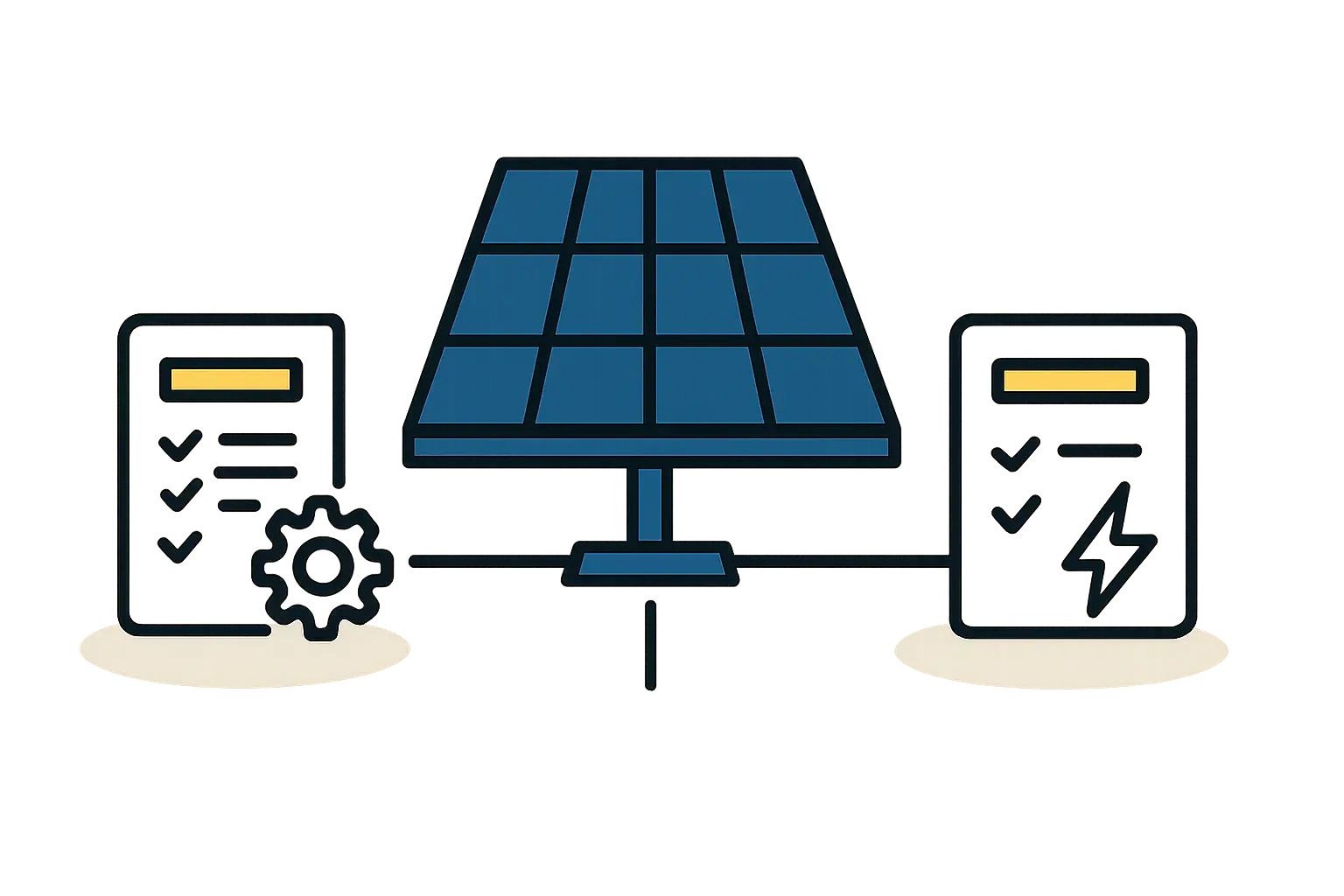
From Factory Floor to Certified Product: The Practical Process
Certification is a systematic process that should be integrated into your business plan from day one, as it influences the entire solar module manufacturing process and is a key factor in calculating the initial investment for a solar factory.
The typical steps include:
-
Design for Compliance: Your product must be designed from the ground up to meet the technical specifications of IEC 61215 and 61730. This includes selecting the right materials and defining precise manufacturing protocols.
-
Internal Quality Control: Your factory building and infrastructure must include a quality assurance lab to conduct internal tests, ensuring consistency before you submit modules for official certification.
-
Third-Party Type Testing: You’ll need to send a set of sample modules to an accredited, independent laboratory for official testing against the required standards.
-
Factory Inspection: The certification body will typically inspect your manufacturing facility to ensure it has quality management systems in place to produce every module to the same standard as the samples tested.
A common challenge in some emerging markets, including parts of West Africa, is the lack of local, accredited testing laboratories. In these cases, manufacturers must factor in the logistics and cost of sending sample modules to accredited labs in other regions, such as Europe or Asia. In our experience with J.v.G. turnkey projects, planning for this step early is essential to avoid costly delays.
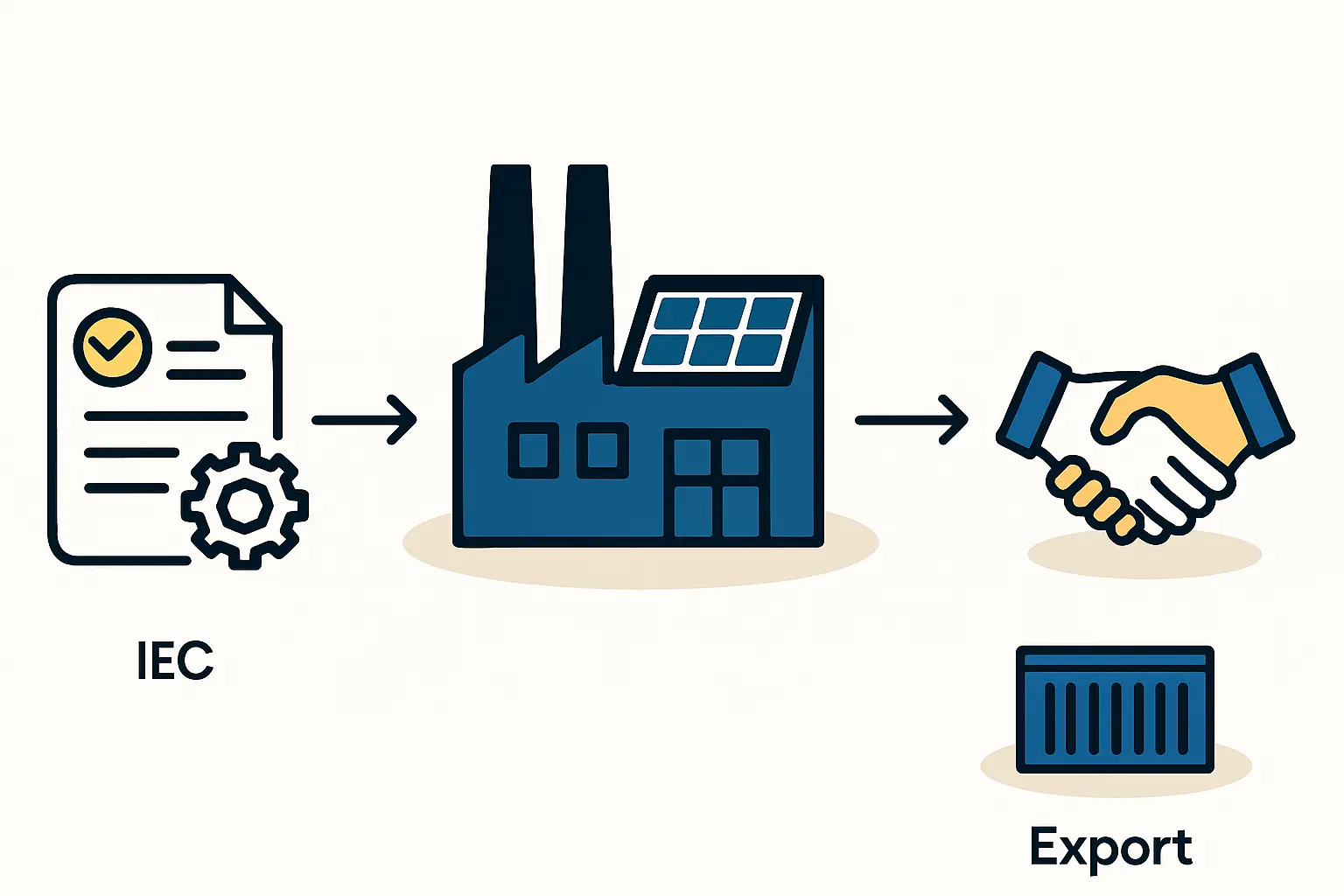
Why Compliance Is a Business Advantage, Not a Burden
Viewing certification as a mere regulatory hurdle is a strategic mistake. For a new manufacturer in Benin, it is one of the most powerful competitive advantages available.
-
Unlocks Market Access: Certification is your passport to the entire ECOWAS region.
-
Ensures Bankability: For any large-scale solar project financed by development banks, commercial banks, or international institutions, the use of certified components is non-negotiable.
-
Builds Customer Trust: In a market where low-quality imports can be a concern, a formal certificate is the clearest signal of quality, safety, and reliability you can give your customers.
-
Reduces Long-Term Risk: Modules built to these high standards are more durable, perform better, and are less likely to fail, significantly reducing future warranty claims and protecting your brand’s reputation.
A well-planned turnkey solar production line integrates certification requirements from the start, making compliance a natural outcome of high-quality manufacturing.
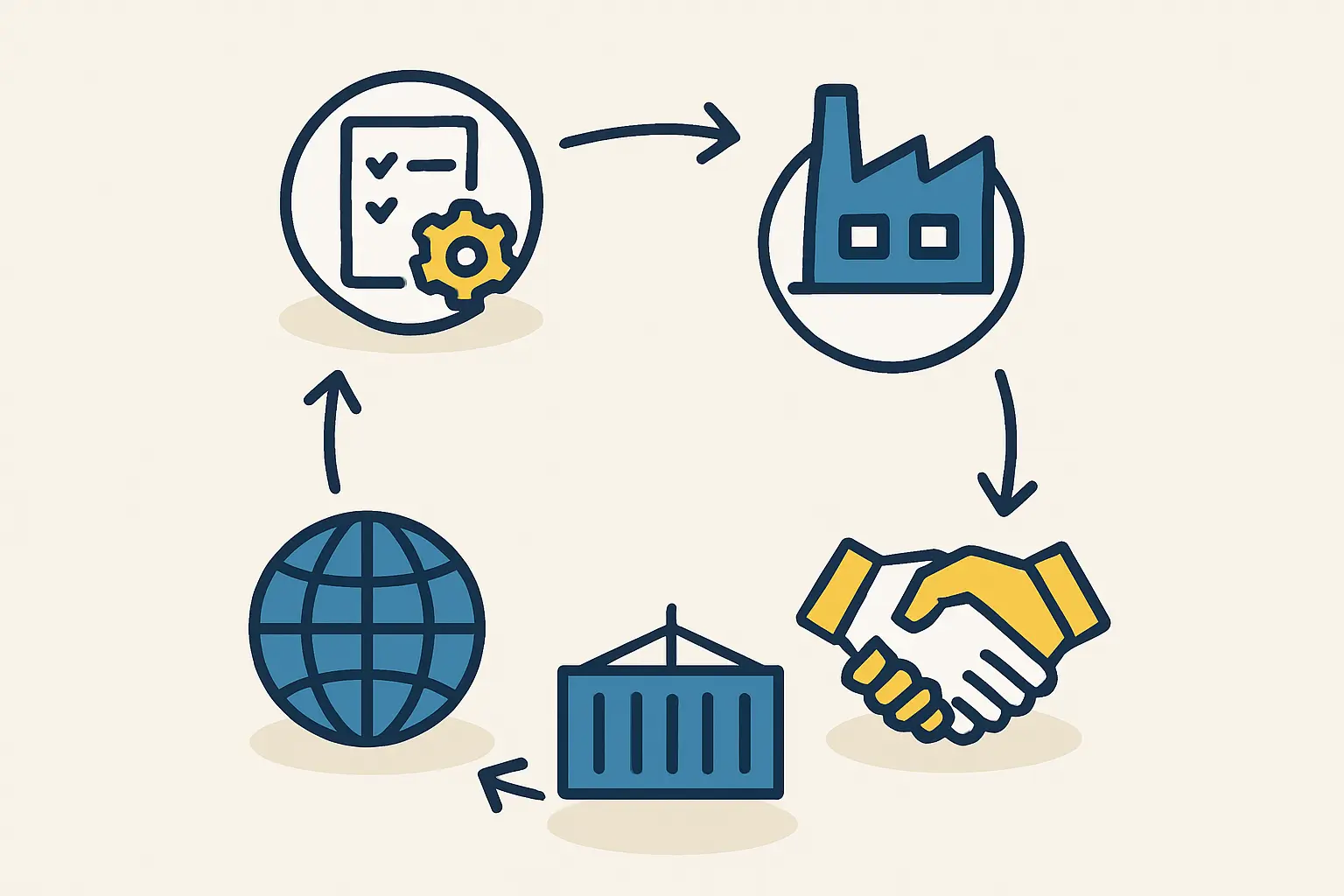
Frequently Asked Questions (FAQ)
What is the difference between IEC and ECOWAS standards?
The ECOWAS standard for solar modules isn’t a new set of rules. It adopts the globally recognized IEC 61215 and IEC 61730 standards and adapts them for the regional context. Think of IEC as the global template and the ECOWAS standard as the official regional version.
If I get my modules certified under the ECOWAS scheme, do I need a separate certificate for Nigeria or Côte d’Ivoire?
No. The core purpose of the ECOWAS harmonized standard and its certification scheme is mutual recognition. A certificate issued under this regional framework should be accepted in all 15 member states, eliminating the need for multiple national certifications.
What if there’s no accredited testing lab in Benin?
This is a common—and solvable—problem. Manufacturers typically partner with internationally accredited laboratories in other countries (e.g., Germany, Spain, China, or India) to perform the required type testing. The process involves carefully shipping a sample set of modules to the chosen lab for evaluation.
How long does certification typically take?
The entire process—from submitting samples to receiving the final certificate—can take several months. This timeline, which includes shipping, testing, and administrative processing, should be factored into your business plan.
Your Next Steps in Regulatory Planning
For any entrepreneur planning to manufacture solar modules in Benin, integrating certification into your business plan is not just a recommendation—it is essential for long-term success. This regulatory framework is not a barrier but a bridge to a larger, more stable, and more profitable market.
By prioritizing compliance from the outset, you position your company for long-term growth, build a trusted brand, and contribute to a sustainable energy future for the region with products defined by quality and reliability.

